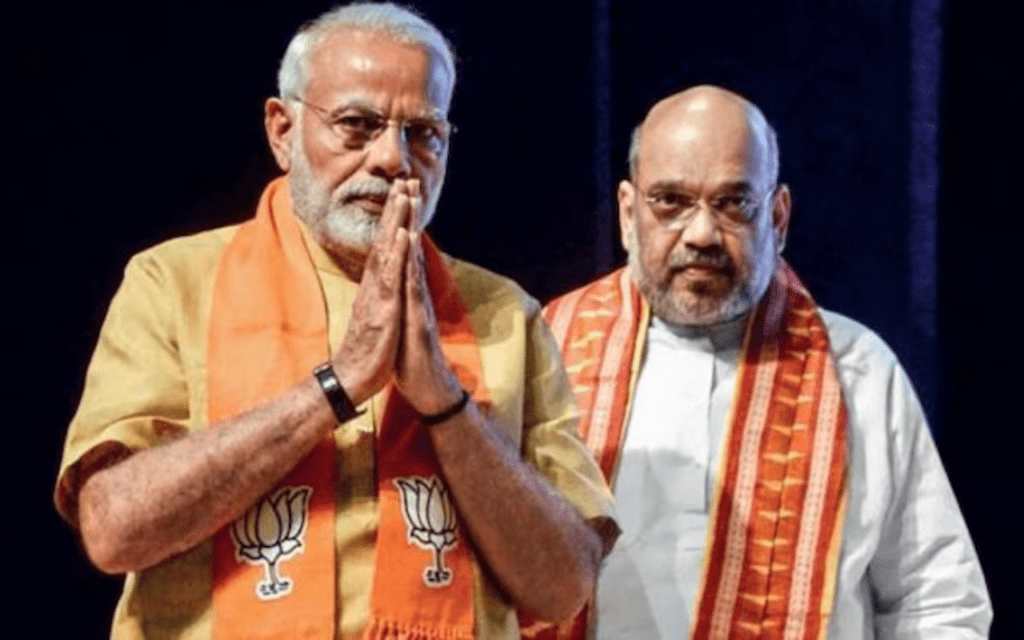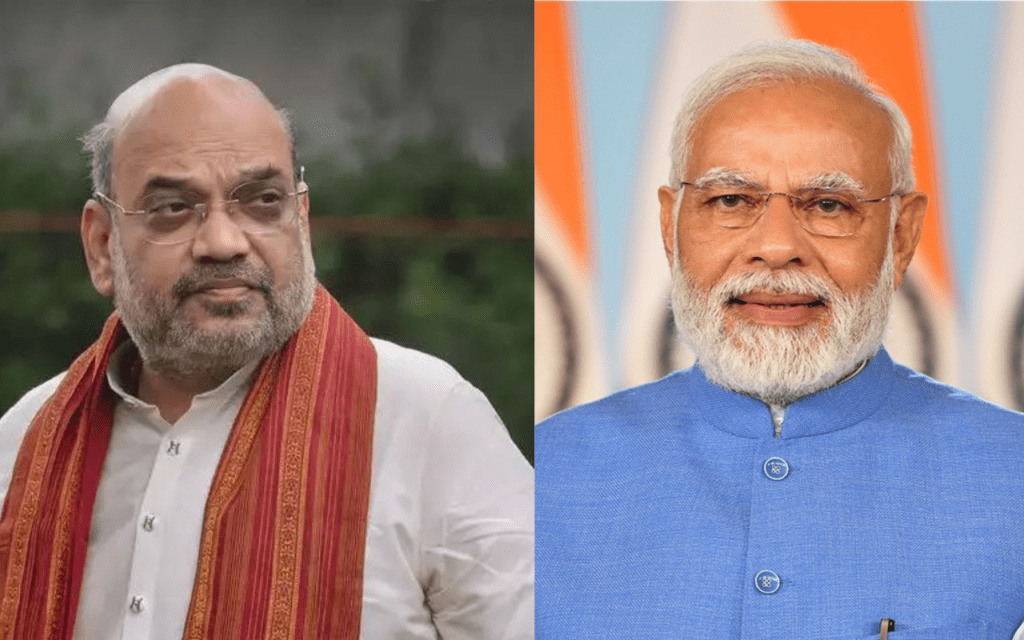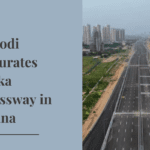The Indian government has recently announced the rules for the Citizenship Amendment Act (CAA). This law aims to simplify the process for refugees from Afghanistan, Bangladesh, and Pakistan who belong to Hindu, Sikh, Jain, Buddhist, Christian, and Parsi communities to obtain Indian citizenship.
In a noteworthy update, the Citizenship Amendment Act (CAA) has been put into effect nationwide, just before the upcoming Lok Sabha Elections in 2024. This decision follows much anticipation and discussion about the controversial law.
Citizenship Amendment Act (CAA) Implementation
The Union Home Ministry might announce tonight the implementation of the Citizenship Amendment Act, according to sources on Monday. This law, known as the CAA, was passed by Parliament in December 2019 amidst strong opposition and protests. It’s the first time religion has been considered a criterion for citizenship in India. The protests resulted in over 100 deaths.

Once the notification is issued, the government can offer Indian citizenship to non-Muslim migrants from Bangladesh, Pakistan, and Afghanistan who entered India before 2015. An official mentioned that the necessary regulations are prepared, and there’s an online portal ready for applicants.
They can indicate their year of entry without needing travel documents. No extra paperwork will be necessary, the official assured.
Also Read: PM Modi Inaugurates Dwarka Expressway in Haryana
What is Citizenship Amendment Act (CAA)?
Citizenship Amendment Act aims to grant citizenship to certain religious minorities from neighboring countries who arrived in India before December 31, 2014. These include Hindus, Jains, Christians, Sikhs, Buddhists, and Parsis from Bangladesh, Pakistan, and Afghanistan.
To qualify, immigrants must have resided in India for at least one year in the last 14 years, with a minimum of five years of continuous residence. Previously, this period was 11 years.
Certain areas, particularly tribal regions in Assam, Meghalaya, Mizoram, and Tripura, are exempt from the law, as outlined in the Sixth Schedule of the Constitution. This includes specific districts like Karbi Anglong in Assam, Garo Hills in Meghalaya, Chakma district in Mizoram, and Tribal areas district in Tripura.
The passing of the Citizenship Amendment Act (CAA) in December 2019 led to widespread protests across the country, especially in the Northeastern region.
Union Home Minister Amit Shah announced that the CAA rules would be enacted before the Lok Sabha polls.
Provisions of Citizenship Amendment Act (CAA) Implementation
The Citizenship Amendment Act, enacted to address citizenship concerns among individuals from neighboring nations, encompasses several significant provisions aimed at facilitating the process.
CAA Controversy and Opposition

Since its inception in December 2019, the implementation of the CAA has been mired in controversy and met with opposition from various quarters. Critics have voiced apprehensions regarding the perceived discriminatory nature of the law and its potential implications for the secular ethos of the nation.
Conversely, proponents of the CAA argue that it serves as a vital mechanism for extending assistance to persecuted minorities seeking sanctuary within India’s borders.
Opposition Tweets on CAA
Congress leader Jairam Ramesh expressed his views on the social media platform X, calling the announcement by BJP a strategy to divide voters, particularly in West Bengal and Assam during the elections.
दिसंबर 2019 में संसद द्वारा पारित नागरिकता संशोधन अधिनियम के नियमों को अधिसूचित करने में मोदी सरकार को चार साल और तीन महीने लग गए। प्रधानमंत्री दावा करते हैं कि उनकी सरकार बिल्कुल प्रोफेशनल ढंग से और समयबद्ध तरीक़े से काम करती है। सीएए के नियमों को अधिसूचित करने में लिया गया इतना…
— Jairam Ramesh (@Jairam_Ramesh) March 11, 2024Kerala’s Chief Minister, Pinarayi Vijayan, responded to the announcement, stating it was intended to unsettle the country.
The Central Government's notification of the Rules to the Citizenship Amendment Act in the wake of the elections is aimed at disquieting the nation. The Ministry of Home Affairs has issued the notification regarding the CAA, just ahead of the announcement of the elections to the…
— Pinarayi Vijayan (@pinarayivijayan) March 11, 2024Delhi’s Chief Minister, Arvind Kejriwal, strongly opposes the Centre’s move to implement the Citizenship Amendment Act (CAA), stating it goes against the interests of the nation. He believes the public will express their discontent with this decision in the upcoming Lok Sabha elections.
दस साल देश पर राज करने के बाद एन चुनाव के पहले मोदी सरकार CAA लेकर आयी है। ऐसे वक़्त जब गरीब और मध्यम वर्ग महंगाई से कराह रहा है और बेरोज़गार युवा रोज़गार के लिए दर दर की ठोकरें खा रहा है, उन असली मुद्दों का समाधान करने की बजाय ये लोग CAA लाये हैं।
कह रहे हैं कि तीन पड़ोसी देशों…
— Arvind Kejriwal (@ArvindKejriwal) March 11, 2024Asaduddin Owaisi, the leader of AIMIM, emphasized the importance of providing refuge to those facing persecution, regardless of their religion or nationality.
He questioned the government’s delay in clarifying these rules over the past five years and the sudden implementation now. Owaisi criticized the government, stating that the Citizenship Amendment Act (CAA), along with NPR-NRC, appears to unfairly target Muslims without any other meaningful purpose.
Aap chronology samajhiye, pehle election season aayega phir CAA rules aayenge. Our objections to CAA remain the same. CAA is divisive & based on Godse’s thought that wanted to reduce Muslims to second-class citizens.
Give asylum to anyone who is persecuted but citizenship must…
— Asaduddin Owaisi (@asadowaisi) March 11, 2024Also Read: PM Modi Declares Drop in LPG Cylinder Price on Women’s Day
Government’s Perspective on CAA
The decision of the government to enact the Citizenship Amendment Act prior to the Lok Sabha Elections underscores its commitment to tackling citizenship-related issues and fulfilling its electoral promises.
This strategic move is poised to exert significant influence on the political landscape in the lead-up to the impending elections, with political parties and stakeholders closely monitoring the unfolding developments associated with the implementation of the CAA.
Also Read: Election Commissioner Arun Goel Resigns Prior to Lok Sabha Elections
Citizenship Amendment Act (CAA) Implementation FAQs
Q.1. What is the Citizenship Amendment Act (CAA)?
Ans. The Citizenship Amendment Act (CAA) is a law enacted in India to simplify the process for refugees from Afghanistan, Bangladesh, and Pakistan, belonging to certain religious communities, to obtain Indian citizenship.
Q.2. Who does the CAA aim to grant citizenship to?
Ans. The CAA aims to grant Indian citizenship to refugees from Afghanistan, Bangladesh, and Pakistan who belong to Hindu, Sikh, Jain, Buddhist, Christian, and Parsi communities.
Q.3. What are the eligibility criteria for citizenship under the CAA?
Ans. Eligible immigrants must have entered India before December 31, 2014, and have resided in the country for at least one year in the last 14 years, with a minimum of five years of continuous residence.
Q.4. Which regions are exempt from the provisions of the CAA?
Ans. Certain areas, particularly tribal regions in Assam, Meghalaya, Mizoram, and Tripura, as outlined in the Sixth Schedule of the Constitution, are exempt from the provisions of the CAA.
Q.5. Why has the CAA sparked controversy and opposition?
Ans. The CAA has sparked controversy due to concerns about its perceived discriminatory nature and its potential implications for the secular fabric of the nation. Critics argue that the law discriminates against Muslims, while supporters contend that it provides relief to persecuted minorities.







